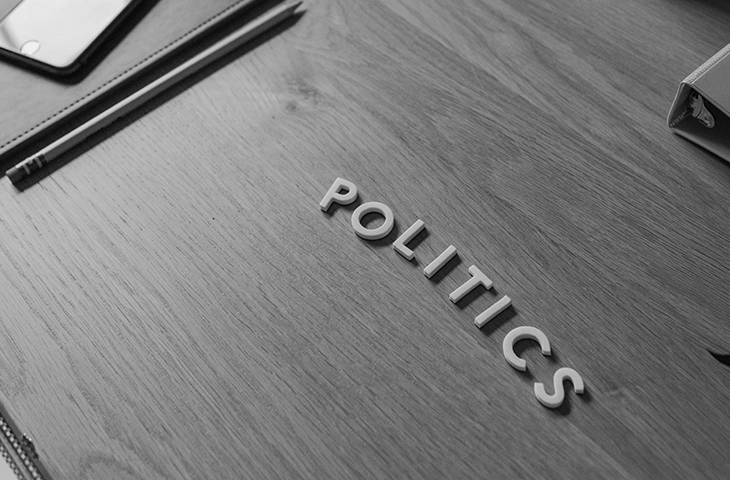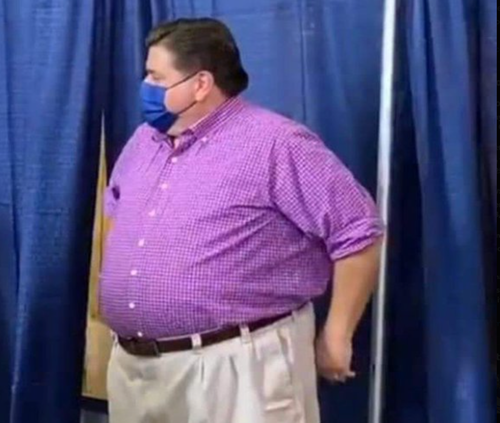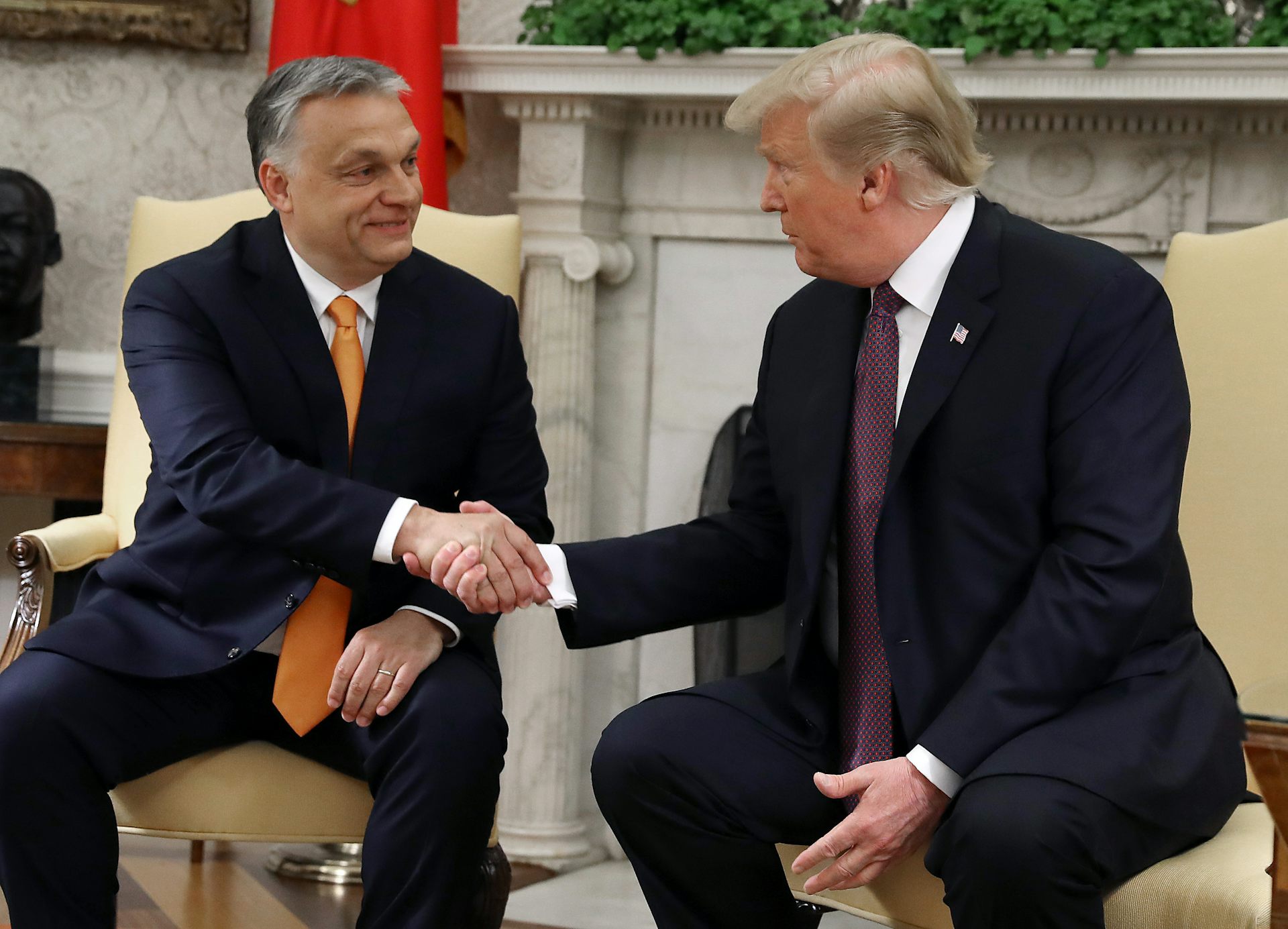Once All-powerful, Pharma’s Allies In Washington Are Fleeting

Big Pharma isn’t sure how to handle Donald Trump’s Republican Party.
Trump is pledging to impose tariffs on drug imports, while Health Secretary Robert F. Kennedy Jr. has vilified the drug industry’s profits and questioned the safety of its products.
Long a lobbying powerhouse in Washington, pharma’s struggling to settle on a strategy for defending itself, according to six industry lobbyists and three company officials who spoke to POLITICO. All were granted anonymity to reveal internal discussions.
“It's just paralyzing. You don't know what's going to happen next,” said one of the lobbyists.
The industry’s plight marks a remarkable turn, given how close it once was with Republicans, and shows how Trump has upended alliances that were once a bedrock of the GOP. Executives and lobbyists for the industry told POLITICO that full-throated opposition to Trump is unlikely to sway him and would imperil the policy victories the companies hope are still attainable and for which they need congressional support, including the restoration of a tax break worth billions.
Pharma faces two threats that no other GOP president of the modern era would have made: First, Trump says he wants to slap drugmakers with tariffs that could raise prices for medicines in order to push them to manufacture their products in America.
Second, Trump has appointed a vociferous critic of the drug industry to oversee the department that regulates it. Kennedy believes the industry makes dangerous products and keeps Americans dependent on them for profit. Earlier this month, he said agency staff had for too long been a “sock puppet” for pharma and promised to root out industry influence.
Kennedy has already moved to downsize the Food and Drug Administration and National Institutes of Health. The drug industry needs the former to approve its products and the latter to help develop new ones.
“They're juggling half a dozen different areas that could affect the size of the industry, and therefore the amount of innovation that goes on in the future,” said John Barkett, a managing director at consultancy BRG who previously worked on drug pricing issues on President Joe Biden’s Domestic Policy Council. “I'm sure that, internally, they're doing that math, even if that's not yet informing their external approach to the administration.”
The pharmaceutical industry has the largest lobbying budget in Washington and an army of hired advocates with connections to lawmakers on both sides of the aisle.
The biggest firms are leaning more on their hired guns this year. Eli Lilly almost doubled what it spent on lobbying in the first quarter of 2025 as compared to the same period the year before, according to federal lobbying disclosure filings, while others, such as Pfizer and Merck, have dramatically boosted their lobbying budgets. Some have hired lobbyists who have connections to Trump.
But that doesn’t mean pharma has settled on a strategy for how to handle the president, according to the lobbyists and officials who spoke to POLITICO.
One attributed the inertia to fear, describing pharmaceutical executives as “pretty fucking scared to speak up and defend themselves.”
Industry groups have criticized the agency downsizing — but only in moderate tones. At the time of the firings, earlier this month, a spokesperson for PhRMA, the brand name drug lobby, said they “raise questions” about the FDA’s ability to support innovation.
But in a statement to POLITICO on Wednesday, PhRMA spokesperson Alex Schriver stressed areas of agreement with Trump, around the need to revitalize American manufacturing and rein in insurers, the pharmacy benefit companies that insurers hire to negotiate drug prices, and hospitals, arguing those three industries are most responsible for high health care costs. Schriver said drugmakers were “committed to working with the administration” and echoed Kennedy’s desire to make America “healthier.”
He didn’t mention Kennedy’s opposition to user fee programs that fund roughly half the FDA, which Kennedy thinks compromise the agency’s integrity as a drug regulator. Those user fee programs are currently authorized until the end of fiscal 2027, but negotiations to reauthorize the agreements would normally kick off later this year.
A spokesperson for BIO, an industry group whose members include vaccine makers and smaller biotechs, pointed to CEO John Crowley’s statements warning of the “loss of experienced leadership” at the FDA after its top vaccine regulator, Peter Marks, was forced to resign this month and against “indiscriminate” job cuts at the agency.
U.S. biotech “leadership has been grounded in transparency and guided by scientific rigor and expertise. We have been unequivocal on this point and have actively advocated for maintaining the expertise at the FDA and our other healthcare agencies,” the spokesperson said in a statement, adding that “Predictability, transparency and consistency are essential to developing the medical breakthroughs needed by millions of Americans, and to enabling a thriving, sustainable biotech industry."
Others in the drug industry have criticized Trump’s tariff plans. John Murphy, who leads the lobby for generics makers, the Association for Accessible Medicines, said tariffs would make his member companies’ products “financially unviable.”
But the criticism from branded drugmakers has stopped well short of condemnation, especially considering how vociferously they fought Democrats’ plans to have Medicare negotiate drug prices, calling that the equivalent of “nuclear winter.”
Democrats were the first to break hard with pharma three years ago when they included a requirement that Medicare negotiate prices for some drugs in 2022’s Inflation Reduction Act. Despite Trump’s broadsides, the industry still sees the GOP as more amenable to its asks.
Publicly, the major drugmakers’ trade lobbies have tried to find common ground with Trump over lowering drug prices, and with Kennedy around the need for better treatments for chronic disease.
A number of the biggest firms, including Eli Lilly and Roche, are touting plans to build facilities in the U.S. and employ more American workers.
That’s despite agency moves that could prove existential threats to certain companies, such as the FDA decision this month to delay a decision on whether to approve a Covid vaccine from drugmaker Novavax. Pharmaceutical companies are also worried about an NIH directive instructing staff to vet any grants or contracts related to mRNA technology — the type undergirding the Pfizer and Moderna Covid vaccines — with Kennedy. The administration has also dropped former President Joe Biden’s plan to have Medicare cover new weight-loss drugs.
Drugmakers are pressing for wins they think are achievable. PhRMA, short for the Pharmaceutical Research and Manufacturers of America, continues to flood Washington with ads urging Congress to make changes to Biden’s Medicare drug price negotiation law and to target an industry nemesis — the pharmacy benefit management companies that negotiate prices on behalf of insurers — for new regulation. It represents well-known drugmakers including Johnson & Johnson, Merck and Pfizer.
The industry also wants Congress to restore a tax break for business expenses, allowing companies to deduct expenses from income immediately, rather than over five years for costs incurred in the U.S., and 15 years for foreign expenses. Congress made the change in 2022. One estimate puts its value to just eight major drugmakers at nearly $16 billion a year.
Since Trump moved back into the White House, pharma CEOs have visited Washington and TV news networks to make their case, often by trying to refocus areas of disagreement — such as around Medicare drug price negotiations — into potential consensus, around tweaks to the law that would help some drug companies.
Industry executives and lobbyists say they are messaging to an audience of one — Trump — and believe that the president’s views are unpredictable, shifting and based on, as one lobbyist put it, “grievance and revenge.”
At times, that can lead to some head-scratching responses from the industry.
After Trump issued an executive order this month embracing the Medicare drug negotiations and pledging to use them more aggressively to bring down prices, for example, Schriver told POLITICO that it applauded the president’s efforts to reduce what patients pay for medicines.
He cited the possibility that Trump would end what PhRMA calls the “pill penalty.” That’s the provision in the Medicare negotiations law that gives small-molecule drugs, often taken in pill form, a shorter exemption from price negotiation than biologics, like injectable antibodies.
And while the executive order instructed Kennedy to “minimize any negative impacts” of negotiated prices on medical innovation, Trump at the same time asked his health secretary to develop and implement regulations directing Medicare to obtain “better value” for high-cost drugs, including those not already subject to the price talks.
That could mean using the Centers for Medicare and Medicaid Services, another HHS agency, to require drugmakers to charge Medicare the lowest price offered in other wealthy nations. Trump made such a proposal shortly before the end of his first term — but his campaign backed away from the idea before Trump won reelection.
Even as PhRMA applauds efforts to lower what patients pay for drugs, the lobby is still trying to convince a federal court that the law is unconstitutional, violates multiple amendments in the Bill of Rights and impedes innovation. But the industry sees no prospect that Trump or congressional Republicans will repeal it — instead choosing to focus on tweaks that could save the industry smaller sums of money.
The tactics to date by drug lobbying groups may be starting to annoy other industry players. A drug industry lobbyist said small and mid-sized biotechs are becoming disenchanted with the broader industry’s approach, seeing it as an indication that major companies think “their size and muscle will allow them to get their stuff done.”
Others close to the industry say it should be more vocal in opposing Trump, especially his job cuts — the FDA lost 3,500 employees out of nearly 20,000 and the NIH 1,200 out of more than 21,000 in recent layoffs — saying they pose an existential threat to drug development.
“The house is on fire, and I think people smell the smoke,” said one former Democratic Hill staffer familiar with the industry. “It’s now time to start addressing it.”
Danny Nguyen contributed to this story.


